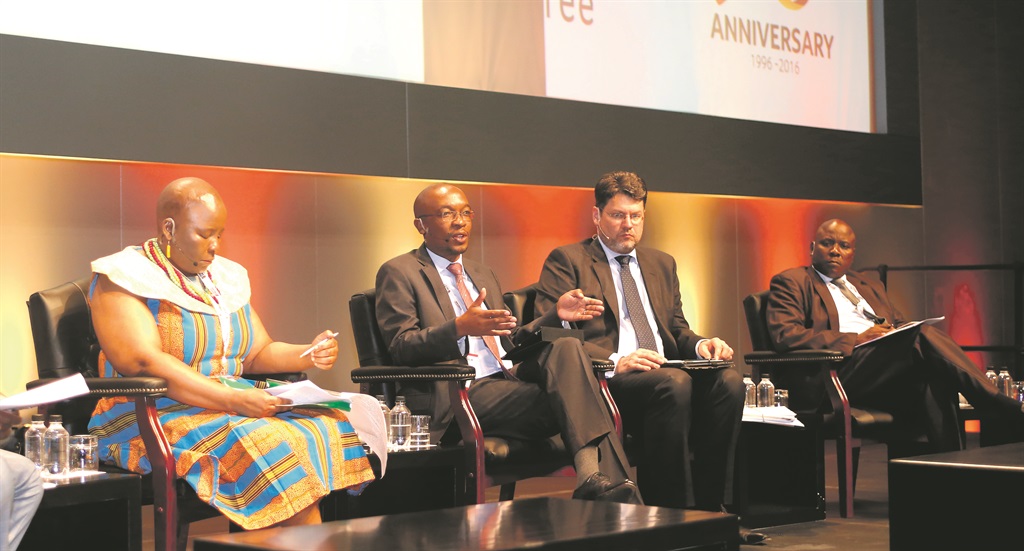
Pathfinding and problem-solving summed up the mood of a panel discussion that started off the second day of last week’s three-day conference held by the SA Local Government Association (Salga) in Sandton.
For critical thinking to gain real traction, however, some retrospective introspection was necessary.
Deputy Cooperative Governance and Traditional Affairs Minister Andries Nel couldn’t have summed up Salga’s history better when he reminded the floor that, prior to the organisation’s formation in 1996, “the concept that there would be wall-to-wall local government structures wasn’t in existence”.
Instead, he said that the local government space that democracy inherited from apartheid was an
un-unified sprawl of more than 2 000 local government authorities.
Nevertheless, the current situation is vastly different, with “wall-to-wall municipalities” characterising a consolidated panoply of local governance.
“We have made tremendous strides,” Nel said, “but we cannot sit on our laurels and pat ourselves on the back.”
Referring to the Back to Basics programme launched by his department two years ago, Nel said: “We are at a point where one third of our municipalities work well, one third is doing well, and one third is dysfunctional.
“All spheres must work together to get the dysfunctional ones up to scratch.”
Of course, it’s easier said than done and the question of money owed to municipalities, an outstanding amount of R115 billion – of which the lion’s share is due by nonpaying consumers – remains a municipal millstone around the neck of service delivery.
In reacting to a question from the floor, Salga’s incoming chairperson, Parks Tau, whose standing in the local government sector received the nod of global approval through his appointment as president of the United Cities and Local Governments association in Bogota, Colombia, recently, identified innovative thinking as a possible solution to nonpayment.
“We need to look at legislation that increases the fast-tracking of household debt owed to municipalities.”
He suggested that, as is the case with tax clearance certificates being required by businesspeople interested in public tenders and other government work, municipal debt should also be cleared on the part of individuals interested in entrepreneurial gain through local government structures.
“The burden of responsibility must
be shifted,” he said.
“With the SA Revenue Service, the burden of obtaining a tax clearance certificate is with the individual, but with a municipality, the responsibility is with local government to have debts settled.”
Tau mentioned a recent fact-finding mission to the US, saying that, “in the US, the burden of the debtors book is with the banks. If people are not up to date with their municipal services, the banks need to chase it up because they will not be able to sell a house that has any outstanding municipal rates and taxes on it.”
It’s a novel idea and a good example of how the burden of “chasing up debt” can be shifted from the public to the private sector.
Tau gave impetus to his argument by stating that one of the major reasons household debt cripples municipal coffers is because local administrations are left to their own devices.
“There is no municipality that can say it has all the resources to sort out its own problems,” he said.
“You are part of the global village, so if you exclude yourself from the global negotiating table, you are excluding yourself from greater capacity that is already in place to not only seek but implement solutions.”
It is a point Reverend Mpho Moruakgomo, president of the Botswana Association of Local Authorities, underpinned when he said: “The collective voice of local government is very important.”
Emphasising his argument, Moruakgomo stressed that even higher-tier leaders “live at local level”, therefore it makes sense that, to effectively address challenges, “we need to come together”.




 Publications
Publications
 Partners
Partners








